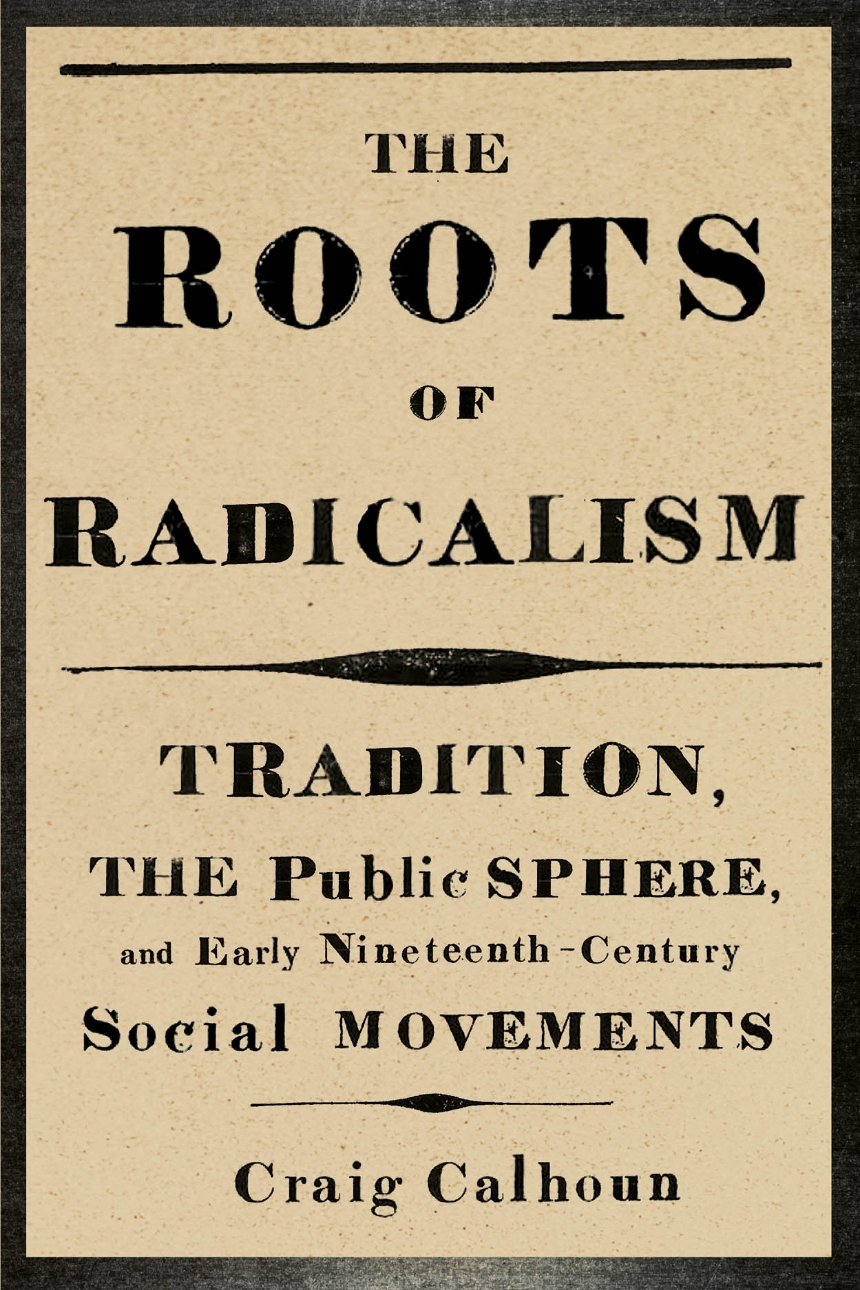The Roots of Radicalism
Tradition, the Public Sphere, and Early Nineteenth-Century Social Movements
9780226090863
9780226090849
9780226090870
The Roots of Radicalism
Tradition, the Public Sphere, and Early Nineteenth-Century Social Movements
The story of the rise of radicalism in the early nineteenth century has often been simplified into a fable about progressive social change. The diverse social movements of the era—religious, political, regional, national, antislavery, and protemperance—are presented as mere strands in a unified tapestry of labor and democratic mobilization. Taking aim at this flawed view of radicalism as simply the extreme end of a single dimension of progress, Craig Calhoun emphasizes the coexistence of different kinds of radicalism, their tensions, and their implications.
The Roots of Radicalism reveals the importance of radicalism’s links to preindustrial culture and attachments to place and local communities, as well the ways in which journalists who had been pushed out of “respectable” politics connected to artisans and other workers. Calhoun shows how much public recognition mattered to radical movements and how religious, cultural, and directly political—as well as economic—concerns motivated people to join up. Reflecting two decades of research into social movement theory and the history of protest, The Roots of Radicalism offers compelling insights into the past that can tell us much about the present, from American right-wing populism to democratic upheavals in North Africa.
416 pages | 2 tables | 6 x 9 | © 2012
History: General History
Sociology: Social Change, Social Movements, Political Sociology, Social History
Reviews
Table of Contents
Preface
Acknowledgments
Introduction
Acknowledgments
Introduction
1. Resituating Radicalism
2. Progress for Whom?
3. The Radicalism of Tradition: Community Strength or Venerable Disguise and Borrowed Language?
4. The Public Sphere in the Field of Power
5. The Reluctant Counterpublic (with Michael McQuarrie)
6. Class, Place, and Industrial Revolution
7. Industrialization and Social Radicalism: British and French Workers’ Movements and the Mid Nineteenth-Century Crises
8. Classical Social Theory and the French Revolution of 1848
9. New Social Movements of the Early Nineteenth Century
10. Social Movements and Social Change
2. Progress for Whom?
3. The Radicalism of Tradition: Community Strength or Venerable Disguise and Borrowed Language?
4. The Public Sphere in the Field of Power
5. The Reluctant Counterpublic (with Michael McQuarrie)
6. Class, Place, and Industrial Revolution
7. Industrialization and Social Radicalism: British and French Workers’ Movements and the Mid Nineteenth-Century Crises
8. Classical Social Theory and the French Revolution of 1848
9. New Social Movements of the Early Nineteenth Century
10. Social Movements and Social Change
Notes
Bibliography
Index
